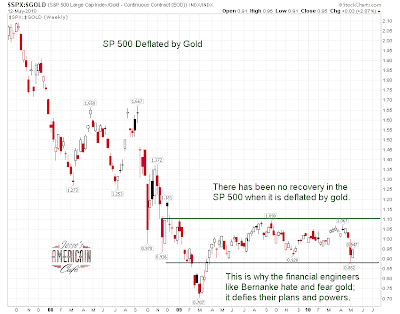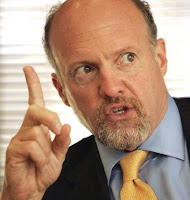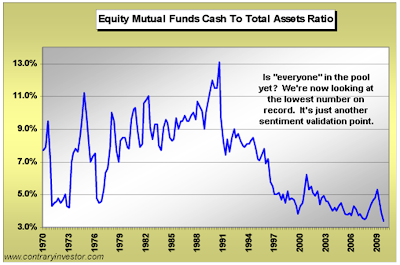Anglo-American financiers to the Rest of World: We've a Gun to Our Heads, Better Surrender.
"To put it crudely, the US wants to inflate the rest of the world, while the latter is trying to deflate the US. The US must win, since it has infinite ammunition: there is no limit to the dollars the Federal Reserve can create. What needs to be discussed is the terms of the world’s surrender: the needed changes in nominal exchange rates and domestic policies around the world."Destroy the world economy by trashing the global reserve currency? Yes we can.
I hate to make light of this because it does offer a useful vignette of the deployment of opposing lines and basic strategies in the currency war, at least from one perspective. Several years ago I forecast that the Bankers would make the world an 'offer they cannot refuse,' or at least that the Bankers think that they cannot refuse. Hank Paulson made such an offer to the US Congress, and now it appears that the financiers are extending a similar type of offer to the rest of the world.
And quiet flows the Don.
Financial TimesThe theme for the next ten years is self-sufficiency.
Why America is going to win the global currency battle
By Martin Wolf
October 12 2010 22:30
Currencies dominated this year’s annual meetings of the International Monetary Fund. More precisely, two currencies did: the dollar and the renminbi, the former because it was deemed too weak and the latter because it was deemed too inflexible. But, behind the squabbles, lies a huge challenge: how best to manage the global economic adjustment.
In his foreword to the new World Economic Outlook, Olivier Blanchard, the IMF’s economic counsellor, states: “Achieving a ‘strong, balanced and sustained world recovery’ – to quote from the goal set in Pittsburgh by the G20 – was never going to be easy ... It requires two fundamental and difficult economic rebalancing acts.”
The first is internal rebalancing – a return to reliance on private demand in advanced countries and retrenchment of the fiscal deficits that opened in the crisis. The second is external rebalancing – greater reliance on net exports by the US and some other advanced countries and on domestic demand by some emerging countries, notably China. Unfortunately, concludes, Professor Blanchard, “these two rebalancing acts are taking place too slowly”.
We can consider this rebalancing on two dimensions. First, the erstwhile high-spending, high-deficit advanced countries need to de-leverage their private sectors on the journey to what Mohamed El-Erian of Pimco, the investment company, called “the new normal”, in his Per Jacobsson lecture. Second, the real exchange rates of economies with robust external positions, strong investment opportunities, or both, need to appreciate, while expansion of domestic demand offsets the consequent drag from net exports.
Aggressive monetary policy by reserve-issuing advanced countries, particularly the US, is an element in both processes. The cries of pain now heard around the world, as markets push currencies up against the dollar, partly reflect the uneven impact of US policy. Still more, they reflect the stubborn unwillingness to accept the needed changes, with each capital recipient trying to deflect the unwanted adjustment elsewhere.
To put it crudely, the US wants to inflate the rest of the world, while the latter is trying to deflate the US. The US must win, since it has infinite ammunition: there is no limit to the dollars the Federal Reserve can create. What needs to be discussed is the terms of the world’s surrender: the needed changes in nominal exchange rates and domestic policies around the world.
If you wish to understand how aggressive US policy might become, read a recent speech by William Dudley, president of the Federal Reserve Bank of New York. He notes that “in recent quarters the pace of growth has been disappointing even relative to our modest expectations at the start of the year”. Behind this lies deleveraging by US households, in particular. So what can monetary policy do about it? His answer is that “very low interest rates can help smooth the adjustment process by supporting asset valuations, including making housing more affordable and by allowing some borrowers to reduce debt interest payments. Beyond this ... to the extent that monetary policy can ‘cut off the tail’ of the distribution of potential adverse economic outcomes ... it can help encourage those households and businesses with money to spend to do so”.
Above all, today’s low and falling inflation is potentially calamitous. At worst, the economy might succumb to debt-deflation. US yields and inflation are already following the path of Japan’s in the 1990s (see chart). The Fed wants to stop this trend. That is why another round of quantitative easing seems imminent.
In short, US policymakers will do whatever is required to avoid deflation. Indeed, the Fed will keep going until the US is satisfactorily reflated. What that effort does to the rest of the world is not its concern.
The global consequences are evident: the policy will raise prices of long-term assets and encourage capital to flow into countries with less expansionary monetary policies (such as Switzerland) or higher returns (such as emerging economies). This is what is happening. The Washington-based Institute for International Finance forecasts net inflows of capital from abroad into emerging economies of more than $800bn in 2010 and 2011. It also forecasts massive intervention by recipients of this capital, albeit at a falling rate (see chart).
Recipients of the capital inflow, be they advanced or emerging countries, face uncomfortable choices: let the exchange rate appreciate, so impairing external competitiveness; intervene in currency markets, so accumulating unwanted dollars, threatening domestic monetary stability and impairing external competitiveness; or curb the capital inflow, via taxes and controls. Historically, governments have chosen combinations of all three. That will be the case this time, too.
Naturally, one could imagine an opposite course. Indeed, China objects to the huge US fiscal deficits and unconventional monetary policies. China is also determined to keep inflation down at home and limit the appreciation of its currency. The implication of this policy is clear: adjustments in real exchange rates should occur via falling US domestic prices. China wants to impose a deflationary adjustment on the US, just as Germany is doing to Greece. This is not going to happen. Nor would it be in China’s interest if it did. As a creditor, it would enjoy an increase in the real value of its claims on the US. But US deflation would threaten a world slump.
Prof Blanchard is clearly right: the adjustments ahead are going to be very difficult; and they have also hardly begun. Instead of co-operation on adjustment of exchange rates and the external account, the US is seeking to impose its will, via the printing press. The US is going to win this war, one way or the other: it will either inflate the rest of the world or force their nominal exchange rates up against the dollar. Unfortunately, the impact will also be higgledy piggledy, with the less protected economies (such as Brazil or South Africa) forced to adjust and others, protected by exchange controls (such as China), able to manage the adjustment better.
It would be far better for everybody to seek a co-operative outcome. (Co-operative outomce is code for 'obey our will and give obesiance to the financiers' - Jesse). Maybe the leaders of the group of 20 will even be able to use their “mutual assessment process” to achieve just that. Their November summit in Seoul is the opportunity. Of the need there can be no doubt. Of the will, the doubts are many. In the worst of the crisis, leaders hung together. Now, the Fed is about to hang them all separately....







































